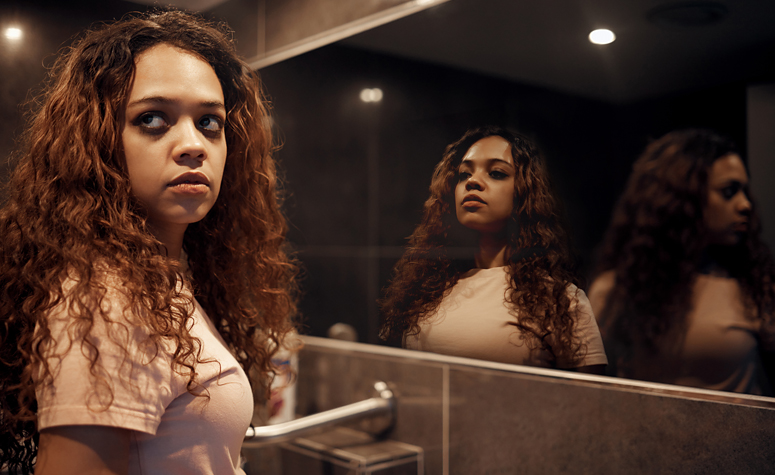Bipolar Disorder Treatment
For many people living with bipolar disorder, the main struggles are feelings of isolation, anxiety, and despair. Fortunately support and treatment for navigating these challenges are within reach.
At AddictionRehab we understand the complexity of this disorder. More importantly we know that it can have a devastating impact on your everyday life. That’s why our main mission is to assist you in regaining stability, developing effective coping strategies and empowering you to reclaim control over your well-being.

Treatment Options for Bipolar
Depending on the severity of your condition at AddictionRehab we offer a variety of both outpatient and inpatient treatments. Individuals experiencing milder symptoms may opt for our online treatment options, which include hourly therapy sessions with one of our consultants, psychologists, or therapists, all accessible from the comfort of your home.
For those who choose our online treatment, our medical professionals, who have years of experience in dealing with mental health issues, will conduct your weekly appointments via video calls. Moreover, they will adjust your schedule to accommodate your daily commitments. In essence, our online therapy service offers the same expert assistance and personalised support provided during in-person sessions at our hospitals or centres.
Alternatively, if you are experiencing severe symptoms of bipolar disorder, we will develop a more structured treatment regimen within our facility. Our inpatient approach offers access to our psychological group programme, where you will receive regular sessions with a highly-trained consultant.
At AddictionRehab, our inpatients are provided with individual bedrooms and receive round-the-clock care. More importantly, we ensure that you feel safe within the supportive community of your fellow patients.

How is Bipolar Disorder Treated?
As a way of recognising the unique circumstances of each patient, we prioritise conducting a thorough initial assessment. This allows us to determine the most suitable course of action for your specific needs.
Specifically, you will be provided with a treatment plan aligned with NICE-approved guidelines. For reference, here are our most effective treatments for bipolar disorder and how they can be used to help manage the symptoms.
Cognitive behavioural therapy (CBT)
CBT, or Cognitive Behavioural Therapy, is a structured, action-oriented form of therapy. Given bipolar disorder’s tendency to overshadow the positive aspects of life, CBT sessions focus on cultivating skills to shift your focus towards brighter and more positive perspectives on life.
Our goal is to equip you with practical tools that you can use to address your thoughts, behaviours, and moods. To achieve this, our therapists provide problem-solving techniques tailored to managing the challenges associated with bipolar disorder. Additionally, this includes identifying and dismantling negative thought patterns that are common during depressive episodes.
- Interpersonal therapy (IPT)
IPT, or Interpersonal Therapy, is particularly effective for patients who suffer from prolonged or frequent bouts of depressive episodes. With this form of treatment, the goal is to gain valuable insights into recognising the thoughts and symptoms stemming from depression.
By enhancing your interpersonal skills, you are likely to experience a reduction in psychological symptoms, paving the way toward improved mental well-being. This will open a path towards improved mental well-being.
- Couples and family therapy
Unsurprisingly, the challenges that come with bipolar disorder often extend beyond the affected individual. In fact, our loved ones will often feel their overwhelming impact, particularly during periods of extreme mood swings leading to distressing emotions for everyone involved.
At AddictionRehab we provide couples and family members therapy as a means of addressing the devastating effects of bipolar disorder. This therapeutic intervention not only educates loved ones about understanding and supporting the condition but also equips them with coping strategies to navigate their emotional distress.
Overall, by recognising the impact on familial and interpersonal dynamics, we aim to create a supportive environment for all affected parties.

Sometimes the smallest step in the right direction
ends up being the biggest step of your life
Tiptoe if you must, but take the step
Medication for bipolar
In addition to therapy, various medications are also available to assist in managing the symptoms of bipolar disorder. Typically, medical professionals will prescribe them as part of your treatment programme. If prescribed, your consultant or psychiatrist will explain your options, and together, you will determine the most suitable medication regimen tailored to your specific diagnosis and circumstances.
Some of the most effective medications for treating bipolar disorder include:
- Lithium
Functioning as a potent mood stabiliser, lithium is particularly effective in alleviating the intense fluctuations associated with bipolar episodes. Typically recommended for long-term use, the treatment should last at least six months for optimal results. Ultimately, this is the most common form of treatment in the UK. However, the dosage must be closely monitored by our medical professionals, requiring regular blood tests to ensure proper dosage and safety. - Mood stabilisers
In addition to lithium, several other medications can be used to alleviate the symptoms of bipolar disorder. Sodium Valproate, an anticonvulsant similar to lithium, effectively stabilises mood fluctuations. Moreover, antipsychotic medications such as Olanzapine or Quetiapine have also demonstrated effectiveness.
Ultimately the choice of medication and duration of treatment varies for patient to patient and is based on two important parameters:
- The individual symptoms
- Your response to initial therapy
Our approach to providing treatment prioritises customisation, ensuring that medication regimens align with each patient’s unique needs and treatment goals. This ensures that medication regimens align with each patient’s unique needs and treatment goals.

Signs That You May Need Bipolar Disorder Treatment
Bipolar disorder is a relatively common mental health condition, estimated to affect approximately 1 in 100 individuals. Due to its hallmark symptoms of mania and hypomania, this disorder used to be referred to as manic depression.
Generally, when an individual is diagnosed with bipolar disorder, they experience episodes of heightened energy levels that mimic an enhanced sense of well-being. As a result, this can lead to impaired judgment and decision-making abilities, rendering it difficult to manage daily tasks effectively.
On the other end of the spectrum, depressive episodes mirror feelings of profound sadness similar to depression. However, unlike typical experiences of sadness, depression in bipolar disorder is more intense and prolonged. Ultimately, this can significantly impact one’s ability to navigate their life.
In essence, identifying bipolar disorder symptoms early on enables you and your healthcare provider to develop a tailored treatment plan to effectively manage your condition and minimise its impact. Furthermore, the diagnosis will help make sense of your fluctuating behaviours. Additionally, this will also provide validation and reassurance that what you are experiencing is not merely a character flaw, but rather a medical condition that requires professional support and treatment.
Key symptoms of bipolar disorder
While some individuals may only experience a few bipolar episodes in their lifetime, others may face recurrent ones. Here are some key symptoms of both depressive and manic episodes:
- Low self-esteem
- Loss of interest in previously enjoyed activities
- Extreme sadness and unhappiness
- Thoughts of self-harm or suicide
- Feelings of exhaustion
- Changes in appetite
- Racing thoughts and rapid speech
- Grandiose beliefs about one’s abilities
- Reduced need for sleep
- Increased energy and urge to be active
Although it’s possible to get a diagnosis at any age, symptoms of bipolar disorder typically emerge during adolescence. Overall, early detection and intervention are the most effective ways to manage the condition and enhance your overall well-being.
To that end, if you find yourself grappling with symptoms indicative of bipolar disorder, contact your GP for a consultation. After conducting a thorough assessment, they can offer support, and guide you toward appropriate treatment options.
Treatment at AddictionRehab
At AddictionRehab our mental health experts possess a deep understanding of bipolar disorder across its spectrum. Through many years of providing treatment, we recognise the overwhelming symptoms of bipolar disorder not only on the individual, but the family at large, and how they may evoke feelings of hopelessness.
That’s why we strive to offer you and your loved ones clarity regarding your current circumstances. Through our programmes, we work towards fostering acceptance of your mental health challenges, and providing much-needed support as you navigate your life with confidence.

Fast Access to Residential Treatment
We are currently able to offer fast access to private inpatient treatment. Please call us today and speak to one of our expert advisors.
Call in confidence: 0800 0148 970
FREE Bipolar Assessment
If your or a loved one are struggling with bipolar disorder, we understand the challenges you’re facing and we’re here to offer compassionate help.
Our highly trained advisers are available to speak to you right away, simply call 0808 252 3379 today.
We can discuss your concerns in complete confidence, explore the options for treatment, and help you to understand what will work best for you.
We’ll also help you to book your free bipolar assessment there and then, with appointments usually available within only a few days.
We understand that taking the first step can be the most difficult, but we’re here to support – with no pressure or judgement.
Professional and compassionate help is just a phone call or click away.




